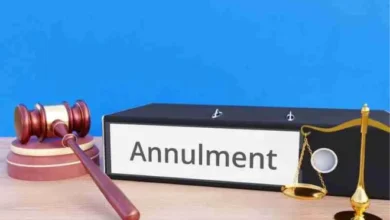Explore Vegas Affordably: Unforgettable Adventures on a Budget

Can you imagine experiencing the dazzling energy of Las Vegas without draining your bank account? You absolutely can. The city bursts with opportunities to explore Vegas affordably, offering thrills that keep your wallet intact while creating memories to cherish.
Las Vegas is more than glitz; it’s a playground for budget-conscious travelers. You’ll find a wealth of cheap things to do in Las Vegas, from iconic free shows to hidden gems that deliver big on fun without the hefty price tag. Whether you’re traveling with family, your partner, or solo, this guide reveals how to explore Vegas affordably with activities that spark joy and wonder.
Why Explore Vegas Affordably?
Choosing to explore Vegas affordably means stretching your dollars to enjoy more of what the city offers. You dive into authentic experiences that showcase Nevada’s vibrant culture and landscapes. With new free events popping up in 2025, it’s easier than ever to discover things to do in Vegas on a budget that rival pricier options.
Affordability doesn’t mean sacrificing quality. You trade overpriced attractions for genuine moments that leave lasting impressions. From inexpensive things to do in Las Vegas to free spectacles, you’ll see why Vegas on the cheap is the smart way to travel.
Free Shows to Explore Vegas Affordably on the Strip
The Las Vegas Strip dazzles with performances that cost nothing but your time. You simply show up and let the magic unfold. These iconic displays make it easy to explore Vegas affordably while soaking in the city’s creative pulse.Kick things off at the Fountains of Bellagio. Water jets sway to music in a mesmerizing show that captivates every visitor. Performances run every 15 to 30 minutes, depending on the time. You stand by the lake, feeling the mist as lights dance, a perfect way to enjoy things to do in Las Vegas strip for free.
Next, head to the Fremont Street Experience. A massive canopy overhead bursts with synchronized light and music shows. You join the lively crowd below, swaying or chatting, embracing free or cheap things to do in Las Vegas. Free live bands often amplify the electric vibe.
Don’t miss the Fall of Atlantis at the Forum Shops. Animatronic figures bring a mythical story to life with fire and water effects. You watch from the shopping area, blending legend with modern flair for fun free things to do in Las Vegas NV.
Inexpensive Attractions Off the Strip to Explore Vegas Affordably
Venture beyond the neon to explore Vegas affordably with off-Strip gems that refresh your spirit. These spots offer natural beauty and cultural depth, minus the crowds. You connect with Nevada’s landscapes while keeping costs low.
Visit Red Rock Canyon National Conservation Area. For just $20 per vehicle, you hike trails through stunning red rock formations. You spot wildlife and ancient petroglyphs on easy paths, making it a top pick for cheap things to do in Las Vegas Nevada. Pack water and start early to enjoy the views.
Discover Seven Magic Mountains, a free art installation of vibrant, stacked boulders. Just south of the Strip, you snap photos against the desert backdrop. This quirky stop adds creativity to your quest to explore Vegas affordably, ranking high among cheap attractions in Las Vegas.
Stop by the Ethel M Chocolate Factory for a budget-friendly tour. You watch chocolatiers craft sweets and sample treats affordably. The free cactus garden nearby offers a serene stroll among desert plants, ideal for cheap fun in Vegas.
Fun Cheap Things to Do in Las Vegas for Families
Families can explore Vegas affordably with activities that engage kids and adults alike. You balance fun with learning while keeping expenses minimal. These options create lasting bonds and are perfect for cheap things to do in Vegas for families.
Check out the Flamingo Wildlife Habitat. Exotic birds and flamingos roam a lush garden setting. You wander paths with educational signs, free and open daily, delighting young explorers with las Vegas family attractions cheap.
Hit the Pinball Hall of Fame. Classic machines start at 50 cents a play. You challenge each other to beat high scores, enjoying nostalgic fun for under $20 per person, a standout for cheap family activities in Las Vegas.
Head to the Container Park playground downtown. Kids climb and play in a creative, urban space while you relax nearby. Free entry makes it a go-to for fun inexpensive things to do in Vegas with energetic little ones.
| Family Activity | Cost | Location | Best For |
|---|---|---|---|
| Flamingo Wildlife Habitat | Free | On the Strip | Nature lovers |
| Pinball Hall of Fame | 50 cents+ per game | Near the Strip | Retro gaming fans |
| Container Park Playground | Free | Downtown | Active kids |
| Ethel M Chocolate Factory | Low for samples | Off the Strip | Sweet treat seekers |
Cheap Things to Do in Vegas for Couples
Moments thrive when you explore Vegas affordably as a couple. You share intimate experiences amid the city’s glow without overspending. These ideas spark connection and fit perfectly with cheap things to do in Vegas for couples.
Stroll through the Bellagio Conservatory & Botanical Gardens. Seasonal floral displays create a dreamy setting. You walk hand-in-hand, admiring the artistry for free, with evening lights enhancing the romance of affordable Las Vegas.
Experience the Fremont Street light shows. Music-synced visuals illuminate the canopy above. You dance or chat under the glow, enjoying cheap Vegas fun with free live music adding to the vibe.
Plan a picnic at Springs Preserve. For $10 entry, you explore gardens and trails together. Pack snacks and talk amid desert flora, a quiet escape that makes fun cheap things to do in Las Vegas unforgettable.
Things to Do in Las Vegas on a Budget During the Day
Daylight hours offer prime chances to explore Vegas affordably with fewer crowds. You tackle indoor spots or early outings to stay cool. These activities energize your day while keeping costs low.Tour the Aria Fine Art Collection. Sculptures and paintings by renowned artists fill public spaces. You discuss your favorites while wandering, soaking in culture for free, a gem for things to do in Las Vegas for cheap.
Hike at Mount Charleston, a short drive from the Strip. Trails range from easy to challenging, with no entry fee. You enjoy cooler temperatures in summer, making it a top cool free things to do in Las Vegas choice. Bring sturdy shoes for the paths.
Browse Bauman Rare Books at the Grand Canal Shoppes. You flip through rare editions without buying, finding a calm break from the action. This literary stop is ideal for cheap activities in Vegas.
Vegas Things to Do Cheap at Night
Nighttime transforms Las Vegas into a glowing wonderland. You can explore Vegas affordably after dark with low-cost activities that shine. These options keep the excitement going without breaking the bank.
Snap photos at the Welcome to Las Vegas Sign under its neon glow. You pose beneath the iconic marker with free parking nearby. The line moves fast, making it a must for things to do in Las Vegas strip for free.
Watch street performers along the Strip. Musicians and artists entertain for optional tips. You give what you can and cheer their talent, adding spontaneity to fun and free things to do in Las Vegas.Catch free aerial shows at select venues. Acrobats perform overhead while you grab cheap snacks. Multiple acts in one visit make this a highlight for cheap things to do on the Vegas strip.
Affordable Las Vegas Dining and Shopping Tips
Fuel your adventures and explore Vegas affordably with savvy dining and shopping strategies. You find deals in unexpected places. These tips help you eat well and shop smart for shopping in Vegas cheap.Seek happy hours at resort food courts. You score discounted bites from diverse vendors, satisfying picky eaters on a budget, a smart move for cheap places in Vegas.
Shop at Fashion Show Mall for affordable finds. You browse sales without pressure, with free events like fashion shows adding value, perfect for las Vegas on the cheap.Look for weekly specials downtown. You try local flavors at reduced prices, uncovering authentic tastes for cheap Vegas activities beyond tourist zones.
Off the Beaten Path in Vegas: Hidden Budget Gems
To truly explore Vegas affordably, seek out lesser-known spots for unique experiences. You avoid crowds and discover authenticity. These hidden treasures reward curious travelers with off the beaten path in Vegas adventures.
Visit the Neon Museum with Groupon discounts. You walk through glowing historic signs, learning Vegas history affordably, a great choice for cheap things to do in Las Vegas Nevada.
Explore local bistros for affordable global cuisines. You taste dishes at community prices, supporting small businesses while saving, a key for las Vegas cheap fun.
Take a day trip to Hoover Dam. Free bridge views let you marvel at engineering feats. Pack a lunch to keep costs low, a top cheap Vegas attractions experience.
A friend once swapped pricey plans for a sunset hike at Red Rock. They packed snacks and watched the desert glow. That simple outing became their favorite, proving cheap fun things to do in Vegas create deep connections.
How to Explore Vegas Affordably: Practical Advice
Maximize your savings to explore Vegas affordably with smart planning. You book early and use apps for deals. These tips ensure your trip stays budget-friendly with how to do Las Vegas cheap.
Use the Deuce bus for transit. An $8 day pass lets you hop between attractions, beating rideshare costs for Vegas on the cheap.
Download apps for attraction discounts. You find buy-one-get-one deals on exhibits, checking daily for savings on cheap things to do in Las Vegas strip.
Stay midweek for lower hotel rates. You snag rooms under $100, avoiding weekend crowds, freeing up time for things to do in Vegas under $50.
Catch a comedy show at venues like Wiseguys. Tickets often cost less than $50, offering laughs for las Vegas shows comedy fans on a budget.
FAQ
What are some cheap things to do in Vegas?
Watch the Fountains of Bellagio for free or hike Red Rock Canyon for $20 to explore Vegas affordably with exciting activities.
How can I find things to do in Vegas on a budget?
Seek free shows like Fremont Street lights or visit Pinball Hall of Fame for low-cost fun, using apps for cheap Vegas things to do.
What are fun cheap things to do in Las Vegas for families?
Families can explore Vegas affordably at the Flamingo Wildlife Habitat or Container Park playground, both free and engaging for cheap family activities in Las Vegas.
Are there inexpensive things to do in Las Vegas off the Strip?
Yes, Seven Magic Mountains and Ethel M Chocolate Factory tours let you explore Vegas affordably with unique, low-cost experiences.
What are cheap attractions in Las Vegas?
The Welcome to Las Vegas Sign offers free photos, and Aria Fine Art Collection provides culture at no cost for cheap Las Vegas attractions.
How to explore Vegas affordably for couples?
Enjoy a romantic walk at the Bellagio Conservatory or picnic at Springs Preserve for $10, perfect for cheap things to do in Vegas for couples.
What are things to do in Las Vegas for cheap during the day?
Hike Mount Charleston for free or browse rare books to explore Vegas affordably with refreshing daytime activities.
Are there free or cheap things to do in Vegas with family?
Downtown playgrounds and free aerial shows let families explore Vegas affordably with las Vegas things to do cheap.
What is there to do in Vegas for free?
Street performers and the Wildlife Habitat offer free fun, helping you explore Vegas affordably with memorable experiences.
What are cheap Vegas entertainment options?
Budget comedy shows and free light displays let you explore Vegas affordably with laughs and spectacles for cheap entertainment in Las Vegas.





3 Comments